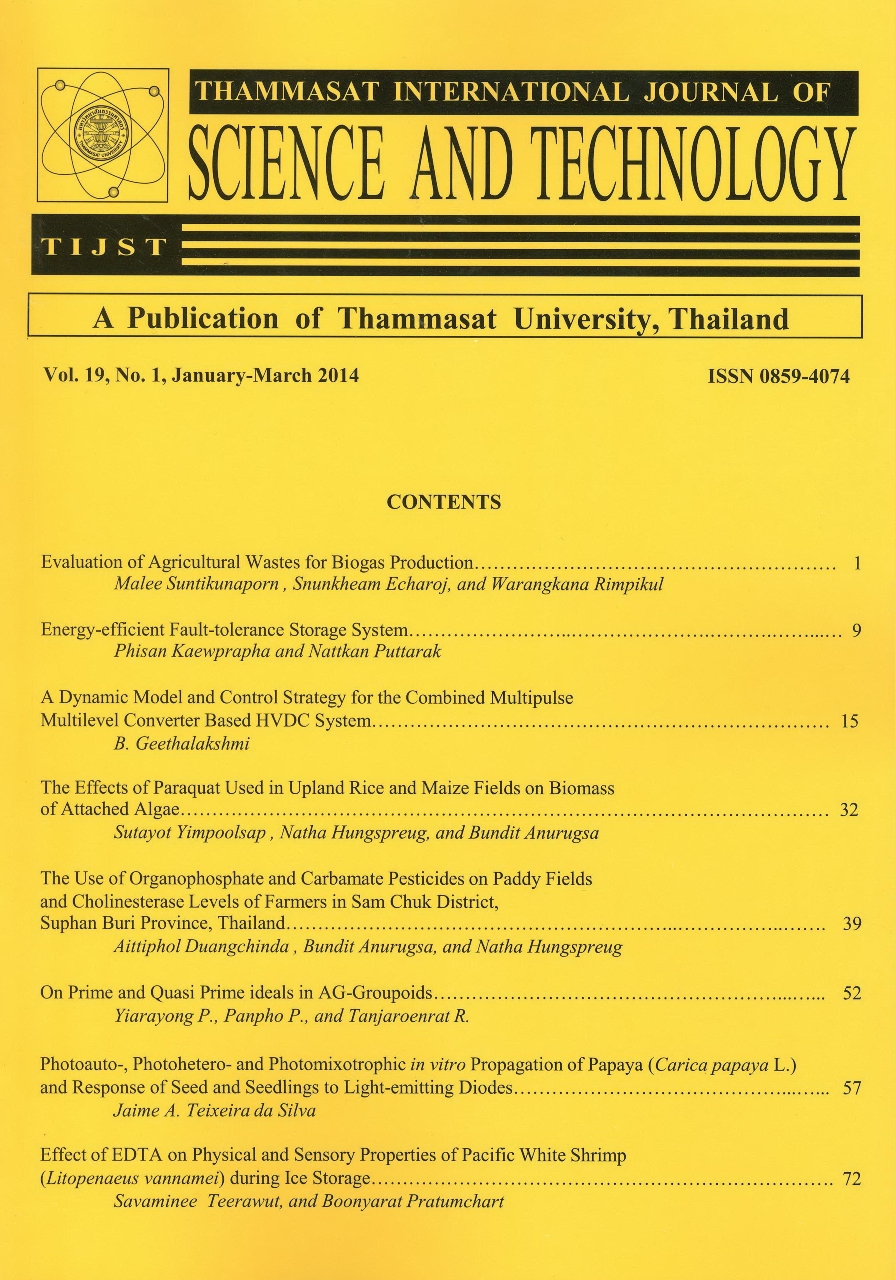Parameter Estimation of Poisson Distribution by Using Maximum Likelihood, Markov Chain Monte Carlo, and Bayes method
Main Article Content
Abstract
The objective of this research is to test a hypothesis that the means of Poisson parameter estimations obtained from Maximum Likelihood, Markov Chain Monte Carlo, and Bayes method were not different from the true parameters. Data was simulated from a Poisson distribution with the true parameter set at 0.5, 2, 5, 10, and 20 and the sample size at 5, 10, 30,50, 100, and 200. The results are as follows: the Maximum Likelihood method produced means of parameter estimations that were not perceivably different from the true parameters in all cases. On the other hand, the Markov Chain Monte Carlo and the Bayes methods produced dissimilar estimations to the true parameters when the sample sizes and the true parameters were small. Additionally, the maximum likelihood method produced minimum mean square errors when the sample sizes and the true parameters were small while the Markov Chain Monte Carlo and Bayes method did so when the sample sizes and the true parameters were large.
Keywords: Bayes Method; Maximum Likelihood Method; Markov Chain Monte Carlo Method; Poisson Distribution.


